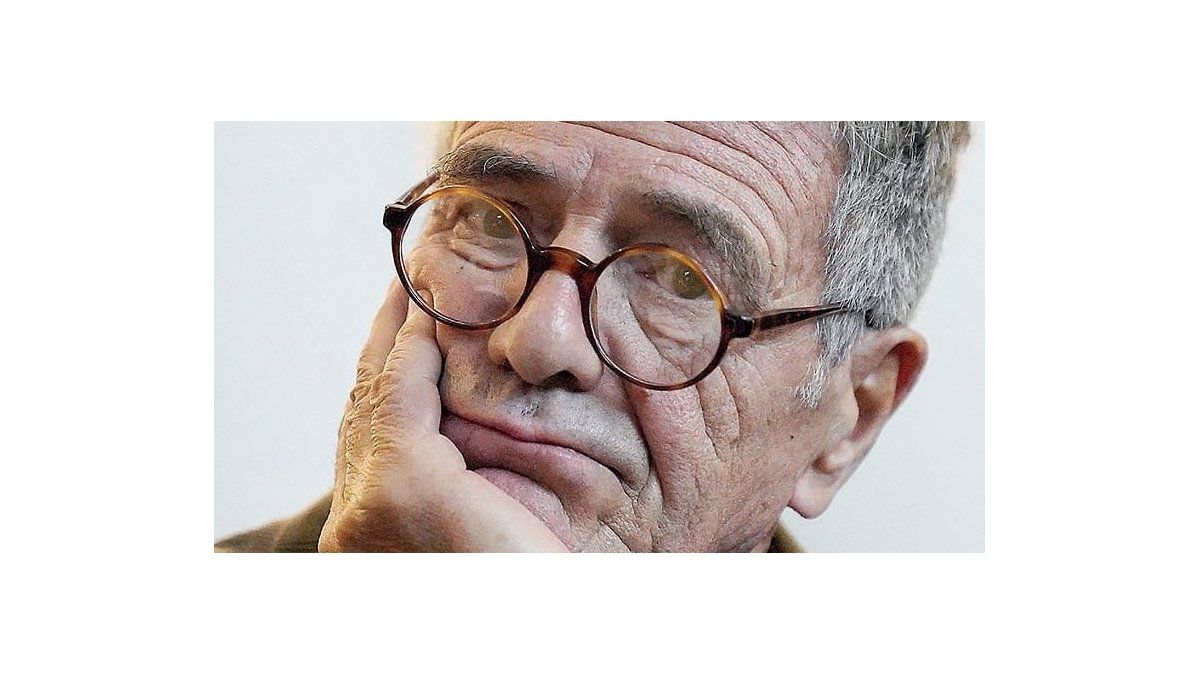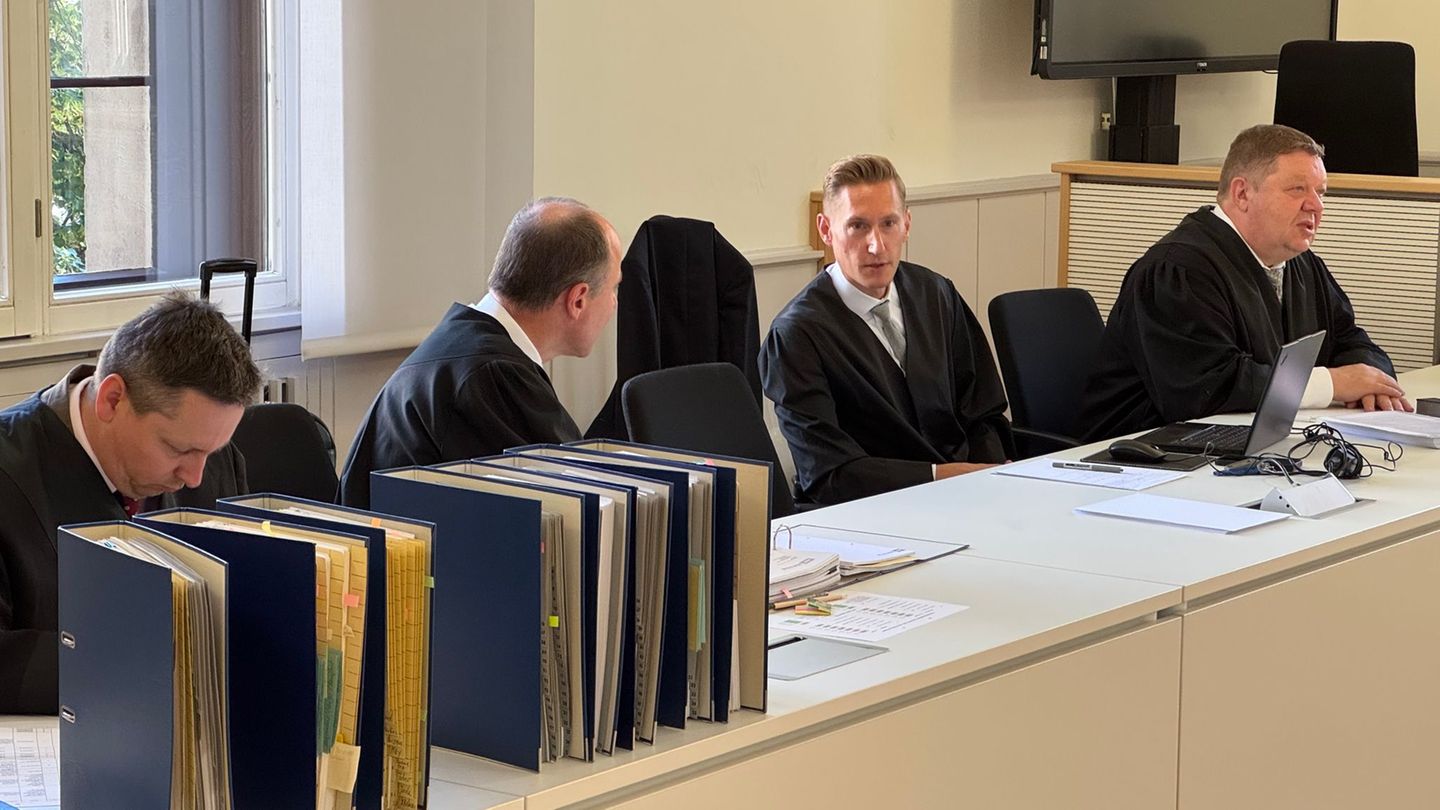The intimate world that is created with friends, the exchange of values, discussions, shared laughter and company when necessary, appears, between evocations and reflections, in “Blackbird” (Seix Barral) new book by Guillermo Saccomanno. Author of a wide narrative work, Saccomanno He has received numerous awards, including the Platinum Konex Award for best novelist of the 2008-2011 period. We spoke with him.
Journalist: What led you to recount your losses and talk to friends who are no longer with us?
Guillermo Saccomanno: The emptiness left by someone who leaves. That emptiness is filled with memory. By remembering what it was like. By trying to find out what that other person was like with you, and you with that other person. When I started writing “Mirlo”, I started with the death of two close friends, “El Francés” and “Juan”. “El Francés”, Carlos Cottet, had been an activist, an exile, an architect, and in Gesell he had become a hotelier. I dragged Juan, Juan Forn, an editor, a writer, to live in Gesell when his pancreas began to bother him. Pancreatitis as a result of his stress as a journalistic and editorial director. From them, as I wrote, friends began to join me. Pablo, a psychologist. Riqui, a journalist for the local channel and his wife, Patri, a teacher. Rosa, a building manager, and the gaucho Julio, a bricklayer. Pepe, a bookseller. Adriana, a photographer. People who are not from here, who ran away or felt expelled from where they were and came to Gesell to rebuild themselves in a different way. And here friendships are essential because the city empties in two months and we have a very long winter.
Q: How long ago did you decide to live in Villa Gesell?
GS: Thirty-something years. I decided to stop certain jobs, especially advertising. Not because the job was hurting me, but because I was hurting myself, I was putting myself off. In Gesell I had some acquaintances, and the memory of the sixties. It was somewhat healing, if that word weren’t so bastardized. Except for my first three books, I wrote all the rest here. I have a religious relationship with literature and if you want a miracle to happen, go to mass, you have to put yourself out there every day. And here I had no excuses, I wrote and wrote; solitude and nature, the sea, now being in the forest, help me with that.
Q: Is “Mirlo” a notebook of friendship, a series of stories, a novel or an essay?
GS: No one is worse than a writer when it comes to talking about his work. You are either very close or very far away. The Italian Dal Massetto used to say: look, it disappears from very close. I don’t know, it came out like a recovery of the past, like anecdotes of changing tones, like portraits that seek to capture a moment. It has a bit of a way of narrating that I learned from Adriana. There is a hybridity in the text in “Mirlo”, a mix of narrative and reflective fragments that seek to stop transience.
Q: What made you find Adriana, the photographer?
GS: Adriana Lestido has talent and an admirable perception. Her book “Mothers and Daughters” fascinates me. In a few photos she captures the mystery of that relationship. It is about the fact that when you have beauty in front of you, you don’t have to lose it, you have to capture it. In my case, narrate it. A great part of the moments I tell came from notebooks, hurried notes, data not to be forgotten. As I was telling about those who are no longer with us, I had to cleanse what I wrote of melancholy. But, as much as you want, the sentimental always weighs on you, no matter how many philosophical theories or personal reflections you add. And I wanted “Mirlo” to be a book of gratitude, of thanks to my friends. I thought that this was my posthumous book, that with it I was saying goodbye. I got so excited that I am already finishing another one, and the ship is sailing, as Fellini said.
Q: Your friendship with Juan Forn, with encounters and distancing, runs through your book.
GS: With Juan, living in the same town, being friends as we were, we often ended up in arguments that were no longer about our tastes, admirations or literary repulsions, but about the most banal issues: weren’t you the one who brought the wine? Hey, you’re eating all the grated cheese, things like that, and in the end, we stopped talking to each other for a while, until we met at the Telephone Cooperative or we bumped into each other on a street with no one else and we made up. One day, eating at my sister’s house, we started arguing, my sister came in and said: you can’t fight anymore, you’re family. There was something of that in our relationship. And in these times, when friendship becomes fraternal, it takes on a political meaning.
Q: Of all the birds, why did you choose the blackbird to name your book?
GS: I didn’t choose it, it was chosen by the Belgian philosopher and ethologist Vinciane Despret, the one from “Talking with the Birds”, the one from “To the Health of the Dead”. She tells how one day a blackbird appears at her window, sings, then falls silent, listens to the silence, waits, listens, until she hears another blackbird answer from beyond. The seasons have changed, the birds have returned and continue the conversation. Beauty invades you for an instant. Despret also illuminates territoriality and transience. The bird migrates, goes somewhere else, far away, very far away, and when it returns, it returns to the same place with total naturalness. When we do that, we are always left with a hint of heartbreak. I think that ultimately “Blackbird” is a book about the awareness of the duration of existence through what is no longer there, what they left you and what they took with them.
Q: You write: “In the ghost’s dream a boy sleeps with the light on,” is that boy you?
GS: I don’t know why I included it. It was going to be a poem. And you can read it like a short story. Then I thought it had to be at the end because it somehow interpreted the meaning of the book.
Q: What are you writing now?
GS: A crime novel that takes place here, in Gesell.
Source: Ambito
I am an author and journalist who has worked in the entertainment industry for over a decade. I currently work as a news editor at a major news website, and my focus is on covering the latest trends in entertainment. I also write occasional pieces for other outlets, and have authored two books about the entertainment industry.




